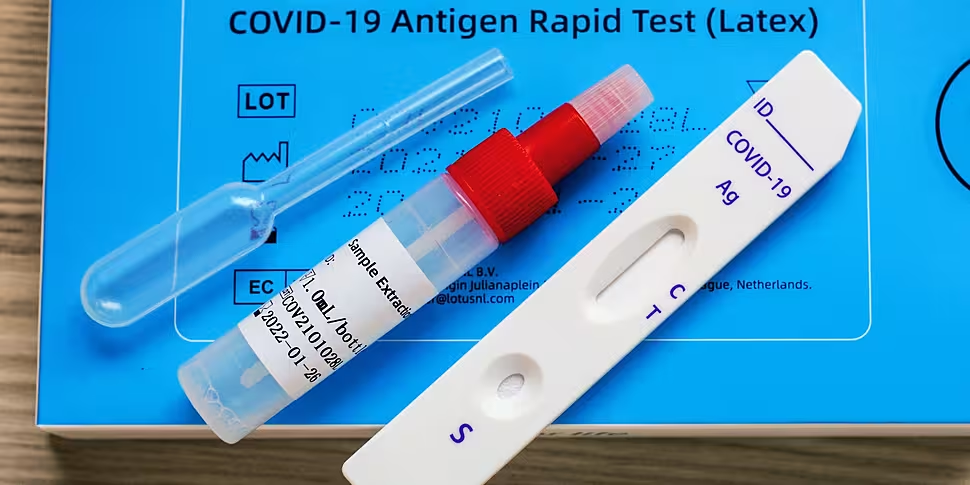There's been plenty of debate around the use of COVID-19 antigen tests in Ireland over the past year, but it's only this week that there's finally been significant movement.
It was confirmed earlier this week that antigen tests will now be sent to fully vaccinated close contacts of confirmed cases.
Meanwhile, an interim report published by an expert advisory group today said the rapid tests may play an important role in the future.
The group said the tests (referred to as rapid antigen detection tests or RADTs) are an "additional tool" to use alongside existing public health measures, including the "gold standard" PCR tests.
However, they warn there's also evidence of "widespread misconceptions among the public regarding how to use RADTs appropriately, what RADT results mean for the likelihood of having the virus, and the implications of test results for subsequent behaviour".
So, what exactly are the drawbacks and benefits of the rapid tests?
Paddy Mallon is Professor of Microbial Diseases at the UCD School of Medicine, as well as a Consultant in Infectious Diseases at St Vincent’s University Hospital.
He's also a member of the expert group on rapid testing, and he spoke to The Hard Shoulder to explain the advantages and limitations of the tests.
Advantages
Professor Mallon said there are clear benefits to these antigen tests, even though PCR testing is more accurate.
He observed: "You can deploy antigen tests on a large-scale. They’re relatively cheap. They’re the sort of thing you can put out at a population or sectoral level.
“They provide results very quickly - you get a turnaround time on these results of between 15 and 30 minutes.
“They’re also relatively easy to use. People do not necessarily need a huge amount of training to use.
“They’re very different to PCR tests - that’s the good thing about them.”
Professor Mallon said RADTs will pick up the majority of cases that are infectious - meaning they can be an “excellent, cheap and scalable” way of identifying asymptomatic but infectious people.
They can also be used to allow people to more safely take part in normal day-to-day activities, whether that's work or large social events.
Professor Mallon said they're pulling together international evidence on a weekly basis to advise Government on the most appropriate testing strategies to mitigate the risk of COVID-19 - whether that's around nightclubs, weddings or bus tours.
While the expert group's work on a final report continues, Professor Mallon said work is already happening to implement their recommendations - including the opening of a HSE portal that allows people to report antigen test results.
Drawbacks
There are, of course, also disadvantages to the antigen tests.
Professor Mallon said: “The downside to antigen testing is they’re not as good as PCR.
“If you have symptoms of SARS COV2 and you want to diagnose it… get a PCR test.
“If you decide to do an antigen test and it’s positive, that’s great because you know there’s a good chance you have the virus and you can isolate. But make sure to get a confirmatory PCR test.
“If you have symptoms of the virus and you do an antigen test and its negative… you still need to get a PCR test. The PCR test will tell you if you do or you don’t have the virus.”
He said it's vital to implement programmes that take both the advantage and disadvantages of the tests on board.
NPHET had been hesitant to recommend the more widespread use of antigen tests in society - it was only this week they finally recommended they should be used to test vaccinated close contacts.
Chief Medical Dr Tony Holohan has warned that some people who are symptomatic are using the tests to determine whether or not they have COVID-19 - and then using a negative result as the basis to stop isolating.
He says it's vital for people who have symptoms to continue to restrict their movements and to get a PCR test.









